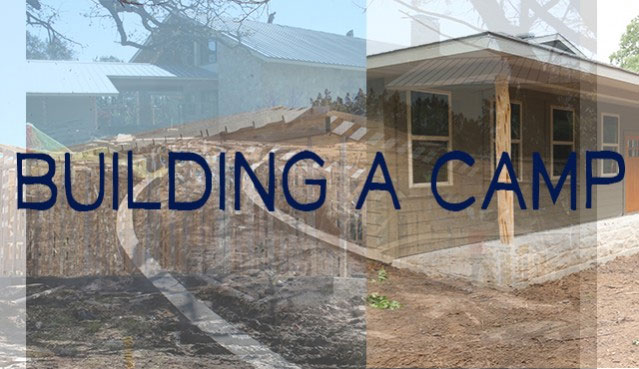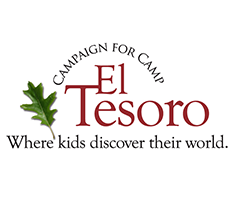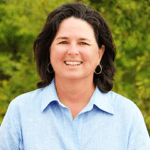
When I was growing up in the 1970s I was fortunate to be a frequent traveler – trips in the summer to visit family in other states, trips abroad with my grandmother, and long road trips across the country with my Mom and Dad. I was aware, even at a young age, that I was having experiences that none of my friends were having. And I am so grateful. It was those road trips across the country that led me to my career path and the desire to see youth learn about and experience the outdoors. I just didn’t realize it then.
My family didn’t have a lot of financial resources, so it was mostly good old fashion tent camping in State and National Parks. The experience was twofold for me – I learned how to camp and coexist with nature, and I learned everything I could from the Park Rangers, like about the local landscape and history. The minute we arrived at a park I went straight to the Ranger Station to gather any, and all, information I could – including the times for presentations. I didn’t want to miss anything. I enjoyed it so much that I initially went to college to become a Park Ranger.
Fast forward to today.
No, I’m not a Park Ranger (and that’s a whole different story), but I have spent most of my career working in organized camping for youth. From outdoor education to overnight camps and more, I could go on and on about the value of youth spending time in the outdoors. I believe attending overnight camp in the summer is invaluable to one’s growth and development – it’s why I do what I do.
But here’s where I’m going to take a turn and share one of my most challenging and rewarding “outdoor” experiences in a place I wouldn’t have expected – the Capital Campaign for Camp El Tesoro.
El Tesoro first opened in 1934. When I started at Camp Fire First Texas in 2005, the facilities were more than showing their age. More importantly, they were not meeting the needs of our families. Much of the camp had no electricity and there were centralized restrooms that were not in the cabins. If this “Treasure” was going to continue to operate, improvements needed to be made. After many focus groups and a feasibility study, the Campaign for El Tesoro was launched in 2008.
The campaign led to many much-deserved updates at Camp El Tesoro: 
- Challenge Course, built in 2011, featuring a high ropes tower and 13 low elements
- Equestrian Center, built in 2012 with a 12,500 sq foot covered riding area
- WoHeLo Lodge, built in 2013 is a fully air-conditioned and updated dining facility accommodating up to 300 people
- Center of Camp, built in 2013 including the Health House, Camp Office and Camp Store
- Multi-Sports Court, built in 2013 for tennis, volleyball, basketball and more
- New Cabin Construction, featuring 10 duplex-style rooms with full restrooms, heat and attic fans
- Building Renovation, including updated interior and exteriors for the Louisa Haun Lodge, Horizon Lodge and Discovery Lodge
I will forever be grateful to the leadership of the organization, both staff and board of directors, who had the foresight (and quite frankly the guts) to embark on such an endeavor. The fact that I was able to be a part of it is not something many in our industry can say.
Why am I grateful? There are so many reasons. I learned more than I ever imagined about construction. And I mean every detail of it. When I’m out in public I look at buildings in a whole different way, sometimes to the amusement of those I’m with. But more important to me is that I contributed to the improvement of what was already an amazing place, with the goal of ensuring that many more generations will have the opportunity to camp, coexist with nature and experience all that El Tesoro has to offer.
So, I might not be a Park Ranger and El Tesoro might not be a national landmark – but everything worked out for a reason. The focus of the team was and still is to ensure that El Tesoro is a place where youth and families can learn about and experience the outdoors – I’m proud that we were able to maintain the integrity and magic of the camp.
 Lisa Cook serves as the council’s Chief Facilities and Technology Officer. She has vast experience guiding programs and facilities ranging from 223-acres of outdoor space, to buildings that house ten people. Prior to joining the Camp Fire Staff, Lisa spent seven years with the YMCA in their camping and outdoor programs as a naturalist and camp director, and managed the River Watch Program in Colorado. Lisa holds a degree in environmental studies from Florida International University. She is a member of the American Camp Association and has served as a member of the Board of Directors for the Rocky Mountain Watersheds Volunteer Monitoring Network and the Colorado Watershed Network.
Lisa Cook serves as the council’s Chief Facilities and Technology Officer. She has vast experience guiding programs and facilities ranging from 223-acres of outdoor space, to buildings that house ten people. Prior to joining the Camp Fire Staff, Lisa spent seven years with the YMCA in their camping and outdoor programs as a naturalist and camp director, and managed the River Watch Program in Colorado. Lisa holds a degree in environmental studies from Florida International University. She is a member of the American Camp Association and has served as a member of the Board of Directors for the Rocky Mountain Watersheds Volunteer Monitoring Network and the Colorado Watershed Network.






